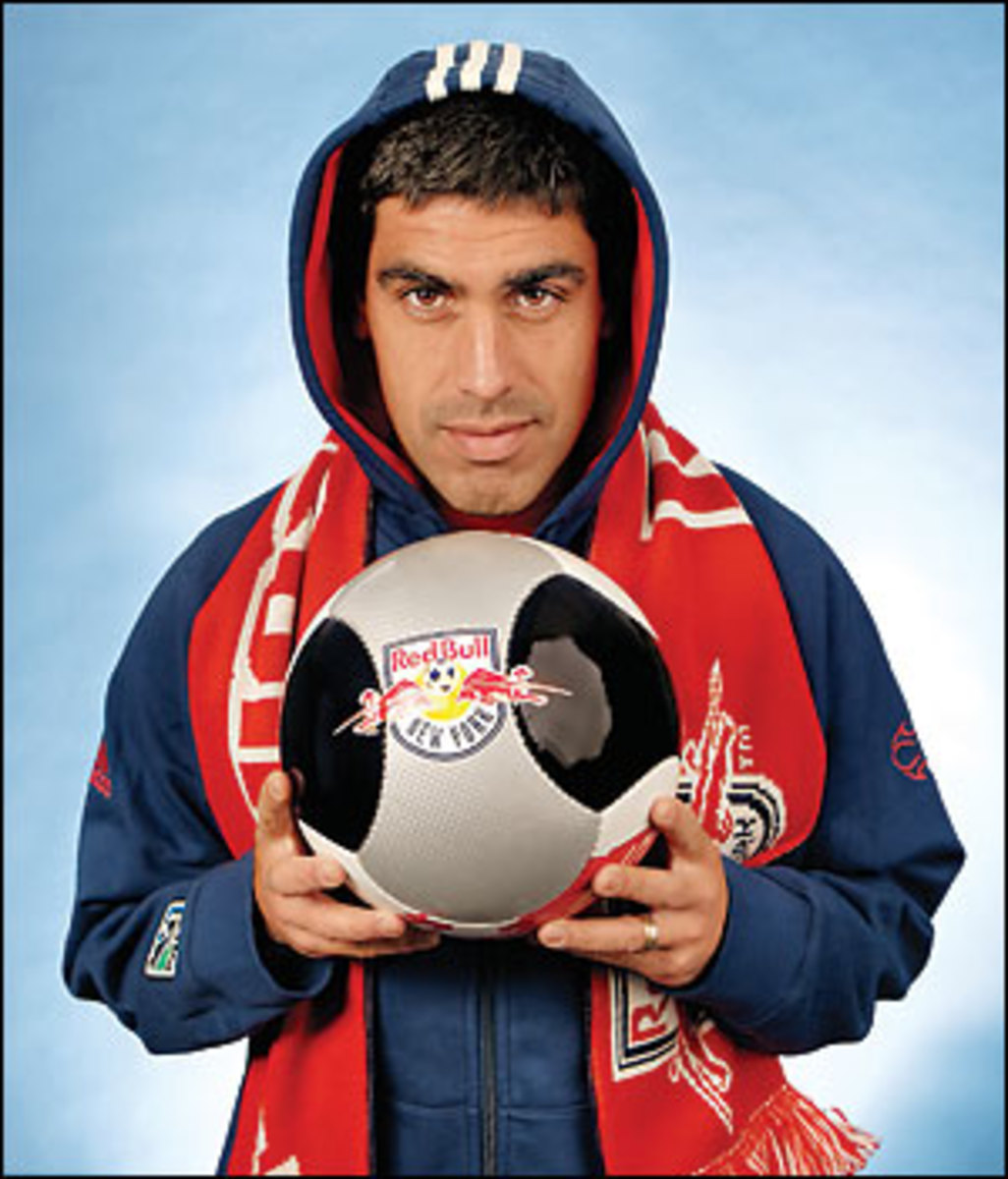First Person
No player personifies American soccer better than Claudio Reyna, a son of Springfield, N.J., who wore the captain's armband for the U.S. at the last two World Cups. But ironically, until last Saturday, when MLS kicked off its 12th season, the man known as Captain America had never played a pro game in his homeland. In January the midfielder left Manchester City of the English Premier League and signed with Red Bull New York, closing a chapter of his career that saw him also play for top clubs in Germany and Scotland -- and starting over, at age 33, on native ground.
On leaving England in the middle of the season to play in MLS
It's always appealed to me to come back. My wife [former U.S. national player Danielle Egan] is American, and we always wanted to raise our kids [eight-year-old Jack, four-year-old Giovanni and six-week-old Joah-Mikel] back home. It was an easy decision for me.
On being reunited with former U.S. coach Bruce Arena in New York
We go way back, from college [Virginia] on. He's the most successful coach this country's ever had, and now he's got a new project: to build this team. Bruce is the perfect guy for that. He understands the American game.
On young Americans playing in Europe instead of in MLS
It helps. You've got a level of competitiveness there that isn't in the States yet, and that helps prepare them for international competition.
On the U.S. national team
We need a steady direction and stability with the coaching situation. [MLS veteran Bob Bradley was named Arena's interim replacement after the U.S. failed to lure Germany's Jürgen Klinsmann.] A lot's up in the air, and it'd be a lot more relaxing for the players if they knew who will be leading the team. Bob can definitely do it. Personally, I'd end the discussion of finding a high-paid foreign manager who doesn't understand the American culture. To spend a lot of money on someone who's going to completely overhaul and confuse the structure that's already there is dangerous. I think it makes sense to have an American.
On the United States' success in the 2002 World Cup and failure in '06
The World Cup is a small moment where things have got to go well and you've got to have a bit of luck. To a certain degree, in 2002, we did. [In 2006] we fell just short in the last game against Ghana, with a penalty decision that was unjust in many people's eyes. Those are the small breaks you need. It all balances out.
On MLS breaking the bank to sign David Beckham
I played against him in England when I was with Sunderland. Signing him is a great move for the league. He will bring notoriety to the league -- and on top of it he can still play at an elite level. He'll put people in the stands, and that's what MLS wants in the short term. It was a no-brainer.
On soccer's potential in the U.S.
It takes time. You've got to realize that it took the other major leagues years of figuring out what to do to become the leagues they are today. Soccer is on an upward trend. Hopefully in 10 or 15 years my kids will only want to play in their country's league, living at home and making a good salary. That would be great.






